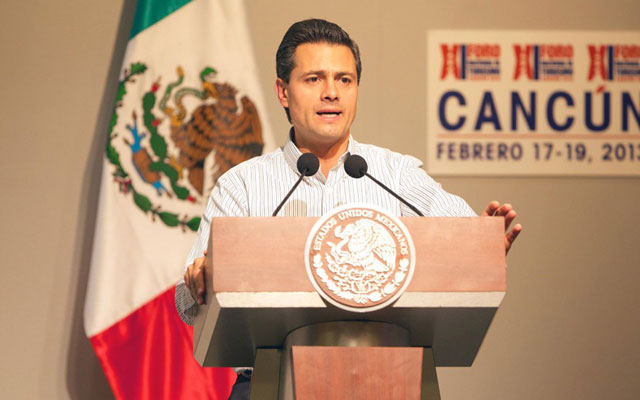Mexican President Enrique Peña Nieto recently announced the first, very timid steps to take Mexico’s energy sector—famously nationalized in 1938 by then-President Lázaro Cárdenas—forward into the 21st century. Meanwhile, President Obama seems intent on taking U.S. energy back to 1938—the original heyday for New Deal big-government types.
Peña Nieto’s proposal would permit involvement in the energy sector by private foreign oil companies (e.g., Exxon, Chevron, Shell) in “oil exploration and production through contracts, including sharing profits or production.” He followed up by taking steps to open up Mexico’s electricity sector to private investment.
The U.S., of course, is headed in precisely the opposite direction. Since taking office, President Obama has moved toward the very sort of statist energy policies that the Mexicans are trying to discard, throwing up obstacles to U.S. private-sector-led energy development (e.g., blocking the Keystone pipeline, providing generous taxpayer subsidies for expensive renewable energy projects, and prohibiting drilling on federal lands).
A recent editorial in The Economist is downbeat on Peña Nieto’s reform package:
Whatever reforms the government announces, they will stop a long way short of privatizing Pemex. It is so wrapped up in a myth of national sovereignty that even the energy minister, a champion of reform, insists that not a “single screw” will be sold.
Nevertheless, Peña Nieto is right to pursue these reforms. They are long overdue. According to The Heritage Foundation’s 2013 Index of Economic Freedom, Mexico ranks below the world average on corruption, so it is not surprising that Mexico’s powerful public and private special interest groups have made sure that previous attempts at reform were watered-down and ineffective. That is how the “oil curse” has hurt developing countries around the world.
Too bad President Obama is not following Mexico’s lead.































